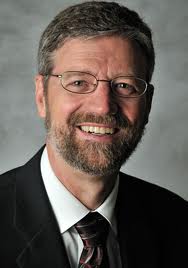(Appeared first in March 2013, The Mennonite. Reprinted with permission.)
By Ervin Stutzman
“Do not forget to show hospitality to strangers, for by so doing some people have shown hospitality to angels without knowing it.”—Hebrews 13:2
In late January, I saw God at work in bringing a group of Christians to agreement on ways to better show hospitality to strangers who come to our communities.
I was meeting in Austin, Texas, with other representatives of Christian Churches Together in the USA, a remarkably diverse gathering of Christians from around our country. CCT is a big tent, spreading its shade over dozens of faith communions that seldom talk to each other.
We represent dozens of denominations and organizations from five large “families”—Roman Catholics, Protestants, Orthodox, Evangelicals/Pentecostals and Historic Black Churches. Our diversity makes it all the more remarkable that we came to a relatively quick consensus on a statement regarding immigration. This could not have happened without the Spirit of God breathing on our meeting.
The CCT gathering could not have been more timely. The meeting and the topic were planned more than a year ago, so we could not have known that a “gang of eight” senators would publish a proposal for immigration reform and that President Obama would make a speech on immigration on the day we convened our meeting.
From the very first service, I noticed the signs of God’s presence among us. After worshipping at St. Mary’s Roman Catholic Cathedral, we walked to the Central Presbyterian Church for a reception. The worship service and the gathering places were arranged to celebrate a historic moment—the signing of a “common agreement on mutual recognition of baptism” between the Roman Catholics and four Reformed communions.
I felt like an onlooker, since their agreement doesn’t encompass the churches who celebrate believer’s baptism. Nevertheless, my heart beat with theirs as they shared how God had been at work among them to bring about this remarkable moment. For them it was akin to the way Anabaptists felt in Stuttgart, Germany, when the Lutherans officially asked forgiveness for the persecu- tion of Anabaptists. Only God can knock down the walls that have blocked the way to Christian unity for nearly 500 years.
There were many other poignant God-moments in our gathering, but I will mention only two. During the worship one afternoon, I sensed the sweet Spirit of God sweeping over the room. Led in worship by a gifted African-American Evangelical at the keyboard, we sang, “Here I am to worship, here I am to bow down, here I am to say that you’re my God.”
In those moments of adoration, it seemed that we as participants were transported beyond the earthly divisions that often keep Christians from truly worshipping together.
We were one in spirit—the Orthodox bishops in formal black robes, the Salvation Army colonel in an officer’s outfit, the Evangelical woman wearing jeans, the Lutheran bishops with their clerical collars, and the retired seminary professor from the Pentecostal Church of God—all of us singing, clapping and bowing before God.
The other poignant event took place as the Historic Black Church led the closing worship service. An African-American participant shared the good news that she had just received a phone call from her husband, announcing that he had achieved legal status in the United States. As a Haitian immigrant, he had faced the arduous task of proving that their marriage was legitimate, not simply arranged for his convenience as an immigrant. This couple’s plight demonstrates one of many barriers people face when they seek to gain legal status in this country.
I am rejoicing in the work of a missional God who once showed up in the guise of a man named Jesus of Nazareth. Although he came to earth as a stranger, I am grateful to be among those who call him Savior and Lord.


